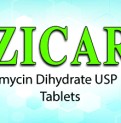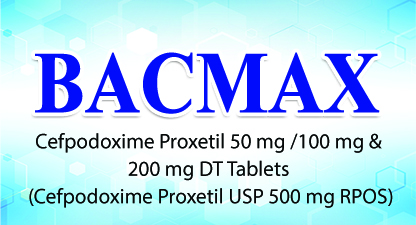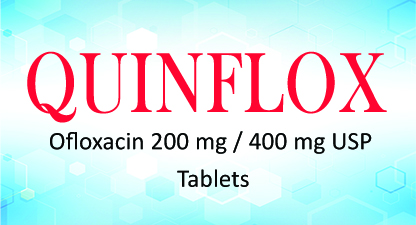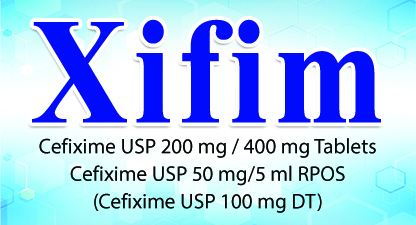AZICARE
Azithromycin is an antibiotic useful for the treatment of a number of bacterial infections. This includes middle ear infections, strep throat, pneumonia, traveler’s diarrhea, and certain other intestinal infections. It may also be used for a number of sexually transmitted infections including chlamydia and gonorrhea infections. Along with other medications, it may also be used for malaria.
Azithromycin is an azalide, a type of macrolide antibiotic. It works by decreasing the production of protein, thus stopping bacterial growth.
- Categories : Antibiotics
- Share Now :
AZICARE
Generic Name: Azithromycin
Therapeutic Category: Antibiotics
Pharmacological Class: Macrolides
Composition: Each film coated tablet contains Azithromycin Dihydrate USP 500 mg
Pregnancy Category: B
Presentation: Available in the pack size as 6 tablets X 10 blisters
Mechanism of Action
Azithromycin prevents bacteria from growing by interfering with their protein synthesis. It binds to the 50S subunit of the bacterial ribosome, thus inhibiting translation of mRNA. Nucleic acid synthesis is not affected.
Indications
Mild-to-moderate susceptible infections including:
- acute bacterial exacerbations of COPD*
- acute bacterial sinusitis, acute otitis media
- community-acquired pneumonia
- pharyngitis/tonsillitis
- uncomplicated skin and skin structure
- urethritis*, cervicitis*, cancroid* in men
- Treatment and prophylaxis of Mycobacterium avium complex (MAC) infection.
Dosage
Route of administration: Oral
For bronchitis
Adult dosage (18 years and older): 500 mg once a day for 3 days.
For sinusitis
Adult dosage (18 years and older): 500 mg once a day for 3 days.
Child dosage (6 months to 17 years): 10 mg/kg of body weight once a day for 3 days.
Child dosage (0 to 6 months): This drug should not be used in children who are younger than 6 months.
For skin and skin structure infections
Adult dosage (18 years and older): 500 mg in a single dose on day 1, followed by 250 mg once per day on days 2 through 5.
For urethritis and cervicitis
Adult dosage (18 years and older):
- If the infection isn’t caused by gonorrhea, single 1-gram dose is given.
- If the symptoms of gonorrhea infection are seen, a single 2-gram dose is given.
For acute middle ear infection
Child dosage (6 months to 17 years): 10 mg/kg of body weight on day 1, followed by 5 mg/kg per day on days 2 through 5.
Child dosage (0 to 6 months): This drug should not be used in children who are younger than 6 months.
For mycobacterium avium complex disease
Adult dosage (18 years and older): 300-600 mg once per day, taken with the drug ethambutol.
For pharyngitis or tonsillitis
Adult dosage (18 years and older): 500 mg in a single dose on day 1, followed by 250 mg once per day on days 2 through 5.
Child dosage (2 to 17 years): 12 mg/kg of body weight once per day for 5 days.
Child dosage (0 to 2 years): This drug should not be used for this condition in children who are younger than 2 years
For Cancroid (Genital ulcer)
Adult dosage (18 years or older): 1 gm orally once
Taken with or without food.
Pharmacokinetics
Absorption: Bioavailability is 37% following oral administration
Protein binding: Approximately 51%
Metabolism: Hepatic
Route of elimination: Biliary
Half-life: 68 hours
Adverse Effects
- Most common adverse effects are diarrhea, nausea, abdominal pain, and vomiting.
- Others: Nervousness, dermatologic reactions, and anaphylaxis
- As with all antimicrobial agents, pseudomembranous colitis can occur during and up to several weeks after azithromycin therapy.
Contraindications
AZICARE is contraindicated in the following situations:
- Hypersensitivity to the active substance or to any of the excipients.
- Hepatic Dysfunction
Precautions
- Clostridium Difficile-Associated Diarrhea
- QT Prolongation
Drug Interactions
- Nelfinavir: Taking this drug with azithromycin may cause liver or hearing problem.
- Warfarin: Taking this drug with azithromycin may increase bleeding.
COPD: Chronic Obstructive Pulmonary Disease is a common lung disease having two main forms: chronic bronchitis and emphysema.







